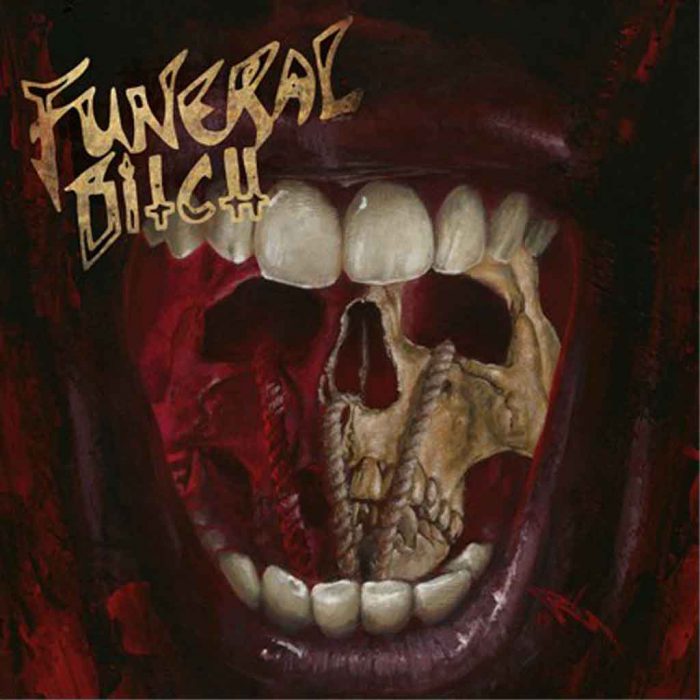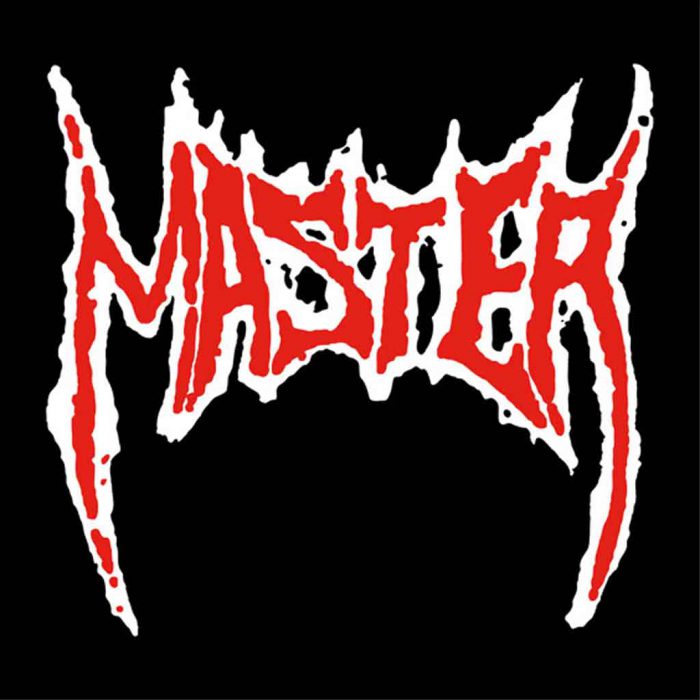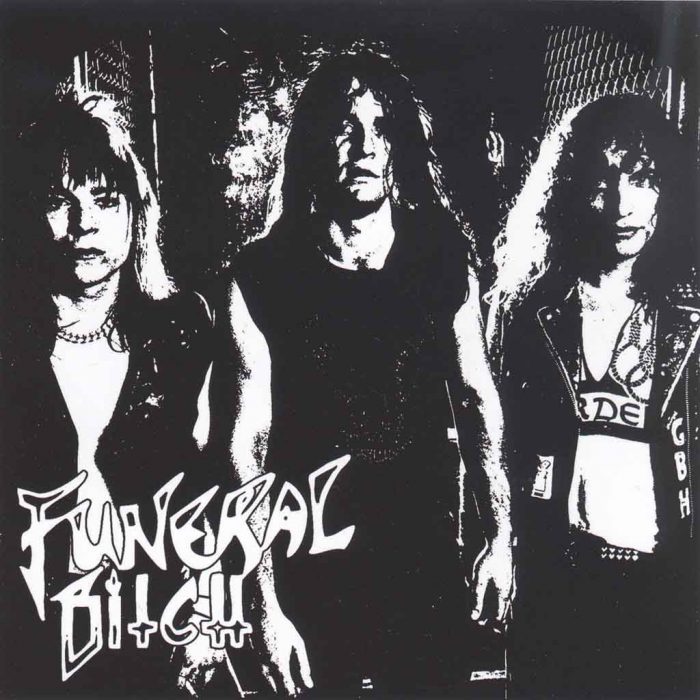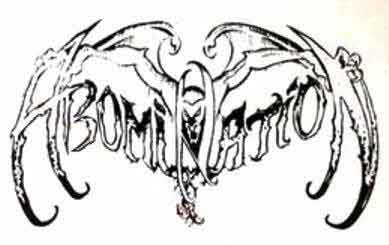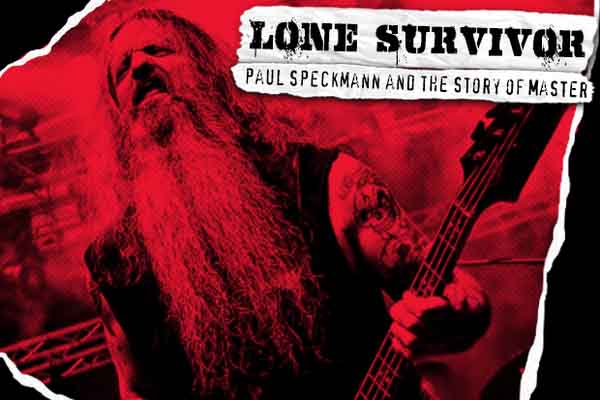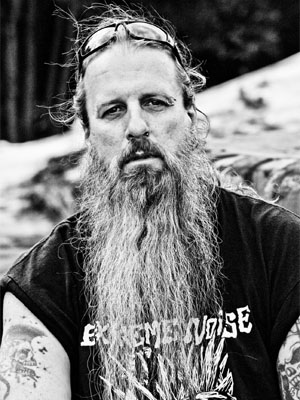 Paul Speckmann’s contributions to metal are often mentioned but rarely fully assessed. To scan metal history, we see Speckmann leaving War Cry in 1983 to go off and create something else and coming out with a punkish proto-death metal hybrid somewhere between in the early- to mid-1980s.
Paul Speckmann’s contributions to metal are often mentioned but rarely fully assessed. To scan metal history, we see Speckmann leaving War Cry in 1983 to go off and create something else and coming out with a punkish proto-death metal hybrid somewhere between in the early- to mid-1980s.
The criticial mass and terminal velocity was reached with Deathstrike’s Fuckin’ Death in its second and wider release, melding with Seven Churches, Abominations of Desolation, Divus de Mortuus, Bestial Devastation and Morbid Tales as part of the definition of a new genre. While formed of a proto-metal style that still showed the oil-on-water punk and heavy metal in a pre-emulsion state, Fuckin’ Death helped establish many of the songwriting conventions of the new hybrid.
Since that time, Speckmann has continued his work in metal with bands such as Master, Abomination, Funeral Bitch, Speckmann Project and numerous other collaborations. He was worked with musicians from Cynic and Krabathor and managed to keep his sound consistent across a dozen or more albums, many of which successively re-work earlier songs into more “death metal” versions.
We are very fortunate to be able to interview Mr. Speckmann again, having interviewed him before, as he’s one of our favorite metal personalities.
Your new album The Witchhunt builds on a huge legacy of past Master (and related Speckmann projects) work. How is it different, and how is it consistent with what you’ve done before?
Well that’s just it: I have been doing things the same way on every album since Faith is in Season. I write and record riffs on the acoustic guitar along with a micro-cassette recorder and when the time comes for a new album, I sift through the riffs and hopefully find half a dozen to work with. Most of the time I think that there is much junk on the recorder, but strangely enough sometimes I go back years later and find a killer set of riffs that I missed somehow.
So basically what I am trying to say here is that I did nothing different than before. The album was recorded very quickly after about a month of on and off rehearsals. Ervery time we go into the studio with the intention of making a great album, sometimes it works and other times it doesn’t. As for consistency, every Speckmann album has this. If something isn’t broken, then there is no need to fix it!
Have there been any lineup changes since the last album?
Nejezchleba, Pradlovsky and myself have been recording together since the Spirit of the West.
Are your lyrics still as radical, less radical, or more radical than early Master releases?
The lyrics speak for themselves. I suppose you don’t have an actual copy of the CD in your hands. The world around us always dictates dictates the themes on all Master recordings. We as a people are living in turmoil as the power mongers continue to take control of the oil and all the wealth in the world. America the big bully is still at work trying to control all aspects of everyone’s lives across the globe. The world has become a quite more difficult place since the origins of Master so the latter proves true when it comes to the themes I suppose.
Some of us refer to early Master as “proto-death metal” because while it’s a lot like death metal, it has feet in other worlds as well. How do you think of your early music?
You know, when this all began we were merely experimenting with the styles we liked as a formula in our music. Today things really haven’t changed. I still listen to early Rock and Heavy Metal and this keeps my mind clear to write my own crazy musical renditions of what I want to hear. I still listen to GBH, the Exploited, MDC, Minor Threat and Discharge from time to time as they genuinely speak to me in tongues. Good one for sure. I certainly like the old Punk stuff. I have always composed the same way, watching murders on “48 Hours” and playing guitar along the way.
What are the roots of the death metal style? Does it have a core set of influences, or was it an idea?
I never considered Master to be a Death Metal band this tag came several years later. The original fellas and I were just playing Metal, period. After hearing bands like Venom, Slayer and Hellhammer as well as Venom, I left the Doom band as they have tagged it now and wanted to get heavier. Master and Deathstrike were much more aggressive and on the right track so too speak.
I was amazed by, despite lineup changes and some stylistic changes and many years, this album still sounds very much like a Speckmann album. How do you maintain your distinctive style?
The reason the album sounds like Speckmetal is that of course I wrote 10 of the 11 songs but more importantly the band Master always stays true to itself. We play to audiences for example of all sizes from 75-5000 people, and people always understand that we live for the music and you can feel this live as well as on the albums. Many of today’s originators only play for money; this is not the only motivation for Master. We genuinely enjoy touring and sharing the new as well as the old songs with audiences across the globe.
Will you tour the USA with this release, or are you Europe-based for now?
We will tour the USA once again from April 18th until May 9th; I am waiting for information on this very soon. This will once again be an American lineup.
The news says the USA is about to go to war with Syria. Do you have some words about that?
The bully is always ready to go for war; the American economy sucks and people need jobs. This sounds like a great time to bomb Syria. With all the arms, bullets, tanks, etc. the economy will certainly improve. The US likes to fight for sure. Loss of life is of no consequence in the end for the mighty USA. Soon the draft will start up again so you too can fight for your country.
When you started out, I believe, you were working a day job moving furniture and making metal at night, and seemed quite happy doing that.
Actually the day job moving furniture came after my day job selling marihuana was put to a stop by the police. I was forced to borrow money from a truckdriver friend and became a fulltime mover instead of ending up in jail. The band was barely alive in those days so I must have lied in an earlier interview or maybe our first one. Looking back, I do not miss the everyday shit of moving other assholes homesteads.
Now you’ve moved to the Czech Republic and music is your full-time gig. How has the transition been for you?
The transition was a natural thing, for the first few years I travelled the globe with Krabathor summers and then worked moving furniture from September to until March for the first several years. Then in 2004 I was offered a merch job for a German company called Bruchstein Tours and stayed in the Czech Republic permanently. I did this for several years until Master became too busy and this is where I am now, just playing shows.
If a fan listens to The Witchhunt and really likes it, what do you recommend that fan does in terms of exploring more Master material? Should he/she go find a copy of Fuckin’ Death or Speckmann Project or start with more recent material?
I think the entire back catalogue has something to offer and many of the original releases are being re-issued. Fans can contact me directly if need be.
4 CommentsTags: abomination, cynic, death strike, deathstrike, funeral bitch, krabathor, master, paul speckmann, Proto-Death Metal, speckmann project
